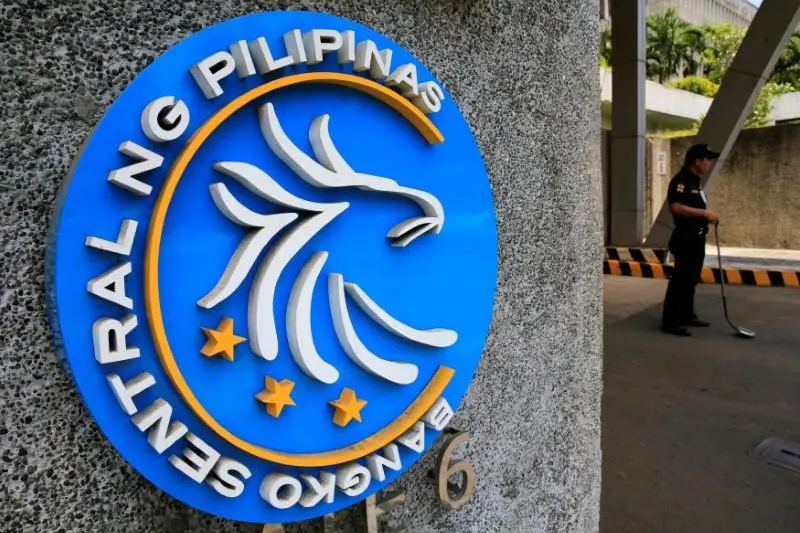PHOTO
The Bangko Sentral ng Pilipinas (BSP) delivered a huge 75-basis-point interest rate hike during a surprise off-cycle meeting to temper mounting risks to the inflation outlook and stabilize the peso exchange rate.
BSP Governor Felipe Medalla said the decision of the Monetary Board to raise interest rates brought the overnight reverse repurchase rate to 3.25 percent from 2.50 percent and the overnight deposit rate to 2.75 percent from two percent as well as overnight lending rate to 3.75 percent from three percent.
This was the biggest one-time rate hike delivered by the BSP since it adopted an inflation-targeting framework in early 2002 and shifted to an interest rate corridor (IRC) system in 2016 as a framework for conducting its monetary operations.
According to the BSP chief, a significant further tightening of monetary policy was warranted due to signs of sustained and broadening price pressures amid the ongoing normalization of monetary policy settings.
'The Monetary Board noted that favorable conditions arising from the strong rebound in growth thus far in the year suggest that the domestic economy can accommodate a further tightening of monetary policy settings. By taking urgent action, the Monetary Board aims to anchor inflation expectations further and temper mounting risks to the inflation outlook,' Medalla said.
The BSP started its interest rate liftoff two months ago to curb rising inflationary pressures by delivering back-to-back rate increases of 25 basis points on May 19 and June 23.
The recent massive rate hike was also a complete reversal of the central bank's earlier gradualist stance.
By raising rates, the goal is to increase the cost of credit throughout the economy.
Higher interest rates make loans more expensive, making both businesses and consumers spend less, resulting in a drop in demand for goods and services, and causing inflation to fall.
Inflation averaged 4.4 percent in the first half, exceeding the BSP's two to four percent target, after quickening to 6.1 percent in June from 5.4 percent in May.
The Cabinet-level Development Budget Coordination Committee (DBCC) announced late last week that it had raised its inflation forecast to a range of 4.5 to 5.5 percent instead of 3.7 to 4.7 percent this year amid continued external factors, including the Russia-Ukraine war.
'In particular, policy action is intended to help manage spillovers from other countries that could potentially disanchor inflation expectations,' Medalla said in an announcement via the BSP Facebook page.
Medalla said the Monetary Board continues to urge timely non-monetary government interventions to mitigate the impact of persistent supply-side pressures on commodity prices.
'The BSP reassures the public of its unwavering commitment and readiness to take further necessary actions to steer inflation toward a target-consistent path over the medium term in keeping with its price stability mandate,' the BSP chief said.
ING Bank Manila senior economist Nicholas Mapa said that he was surprised by the off-cycle meeting as well as the 75-basis-point rate increase just like everyone.
'After months of staying dovish, the BSP whips out a jumbo 75-basis-point rate hike. With inflation past target and the peso at multi-year weakness, the BSP attempts to re-anchor inflation expectations and show resolve to combat inflation,' Mapa said.
ANZ Research chief economist Sanjay Mathur and economist Debalika Sarkar said the latest decision of the BSP marks a significant shift in the preference for a gradual normalization of monetary policy.
'Broadening domestic price pressures and spillover effects from the global economy were cited as the main reasons for the off-cycle hike. Additionally, we think that the stronger-than-anticipated June inflation print in the US and its attendant implications for monetary policy and US dollar strength, at a time when the Philippines' balance of payments has been under stress, were key considerations as well,' Mathur and Sarkar said in their commentary.
Michael Ricafort, chief economist at Rizal Commercial Banking Corp., said the surprise rate hike by the BSP is a possible pre-emptive move on a possible larger 75- to 100-basis-point interest rate increase by the US Federal Reserve on July 27 after inflation hit a new 40-year high of 9.1 percent.
'More local policy rate hikes still possible, if needed, as a function of any further Fed rate hikes to bring down elevated US inflation,' Ricafort said.
Aside from anchoring both actual inflation and inflation expectations, Ricafort said the aggressive tightening by the BSP would help support or at least stabilize that peso that breached the 56 to $1 level and is nearing its all-time low of 56.45 recorded on October 14, 2004.
'Any further local policy rate hikes would also be a function of how the peso exchange rate behaves, going forward,' Ricafort said.
Copyright © 2022 PhilSTAR Daily, Inc Provided by SyndiGate Media Inc. (Syndigate.info).





















